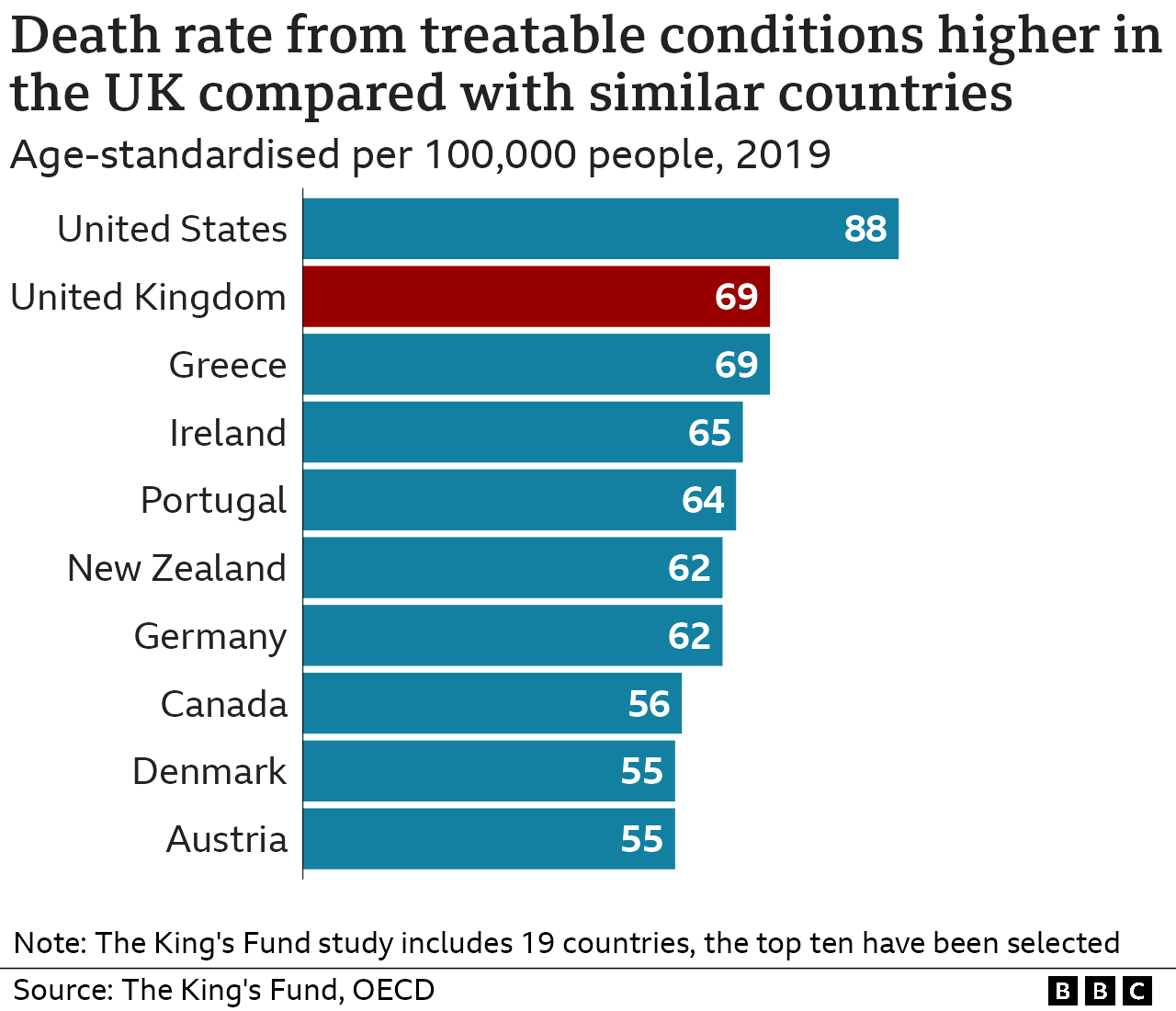According to a study, people in the UK are less likely than those in other wealthy countries to survive treatable conditions like breast cancer and stroke.
According to the review by the King's Fund think tank, the performance of the NHS may be directly responsible for the issue.
It claimed that because the UK health system received below-average funding, it had fewer employees and less equipment than other systems.
But the study revealed that the NHS was very cost-effective within its means, spending less money on administration than other countries.
The NHS is one of the most effectively managed healthcare systems, according to the government, and investments are being made to further enhance services.
The think tank compared the performance of the UK's healthcare system to that of 18 other healthcare systems, including those in Europe, Japan, the US, and Australia, ahead of the NHS's 75th anniversary next month.

The results were:.
- Only the US had a worse track record when it came to preventing deaths from diseases that could be treated.
- Although the study acknowledged that many other factors, besides the caliber of NHS care, would also affect this, the UK had one of the lowest life expectancy rates.
- With less doctors and nurses per person than most of its competitors, the NHS has startlingly low levels of key clinical staff.
- Additionally, it has one of the fewest beds per capita at hospitals.
- The US has five times as many scanners as the UK, and Germany has four times as many as the UK in terms of equipment compared to its population size.
The think tank also discovered that the UK had low rates of people putting off getting medical care because of cost concerns; only one in ten of those polled said they had significant difficulty accessing NHS care.
With an expenditure of less than 2% of the budget, the NHS also had the sixth-lowest administrative expenditure.

The review found that waiting times for common procedures like knee and hip replacements were averaging out across many nations, with waiting lists.
Due to these factors, it was determined that the UK health system was neither a "leader nor a laggard".
The NHS, however, had "sadly seen better days," according to report author Siva Anandaciva.
"While the UK stands out in removing the majority of financial barriers to accessing healthcare and the NHS is managed fairly efficiently, it lags behind its international cousins on some key markers of a good healthcare system.
"The effects of more than a decade of squeezed investment were made worse by the pressures of the pandemic on our health service," he said.
The UK must do much more to reduce the number of people who die young from diseases like heart disease and cancer. As a result, the NHS performs at best mediocrely. ".
There is little evidence that any one approach to funding health care is inherently superior to another, Mr. Anandaciva added, so the findings should not be used as justification for switching funding models.
A spokesperson for the Department of Health and Social Care stated: "This report recognizes the NHS as one of the most effectively managed healthcare systems, and we are investing up to £14 point one billion to enhance services and reduce waiting lists, one of the government's top five priorities. Since July 2021, we've opened 108 new community diagnostic centers, which have performed more than four million tests, checks, and scans and helped patients get diagnosed and start receiving treatment more quickly.
"The NHS has a record number of employees, up over 53,600 from a year ago, including over 5,400 additional doctors and over 12,900 additional nurses. To continue reducing waiting lists and providing high-quality services, we will soon publish a workforce plan to make sure we have the right number of employees with the right skills.
. "







